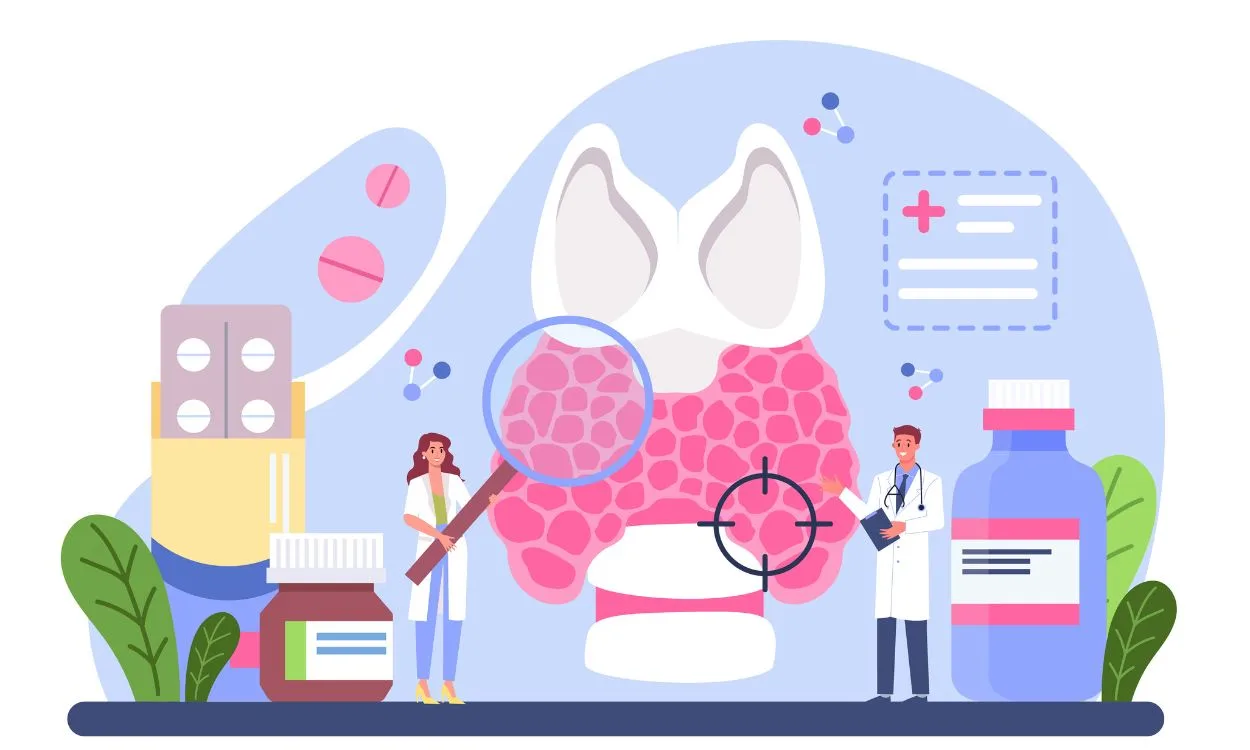What are Thyroid Hormones?
The thyroid gland is a small, butterfly-shaped gland located in the front of the neck. It plays a crucial role in regulating many important bodily functions by producing and releasing thyroid hormones. Thyroid hormones are essential for the body’s metabolism, growth, and development.
Here is some detailed information about thyroid hormones:
- Thyroxine (T4): This is the primary hormone produced by the thyroid gland. It is called T4 because it contains four iodine atoms. T4 is relatively inactive and needs to be converted into its active form, triiodothyronine (T3), in order to exert its effects on the body.
- Triiodothyronine (T3): T3 is the active form of thyroid hormone and is much more potent than T4. It is responsible for regulating the body’s metabolism, including the rate at which cells use oxygen and produce energy. T3 influences various bodily functions such as heart rate, body temperature, and digestion.
- Calcitonin: Apart from T3 and T4, the thyroid gland also secretes another hormone called calcitonin. Calcitonin plays a role in regulating calcium levels in the blood by inhibiting its release from the bones.
The production and release of thyroid hormones are regulated by another hormone called thyroid-stimulating hormone (TSH), which is produced by the pituitary gland in the brain. TSH stimulates the thyroid gland to produce more T4 and T3 when their levels are low and inhibits their production when their levels are high.
Thyroid hormones are essential for overall health and wellbeing. They influence various aspects of our body, including:
- Metabolism: Thyroid hormones regulate the rate at which the body uses energy. Low levels of thyroid hormones can lead to a slower metabolism, resulting in weight gain, fatigue, and feeling cold. On the other hand, high levels of thyroid hormones can lead to weight loss, increased appetite, and feeling hot.
- Growth and Development: Thyroid hormones are crucial for the normal growth and development of children. They are especially important for brain development and can affect cognitive function if levels are imbalanced.
- Heart and Nervous System: Thyroid hormones play a vital role in the functioning of the heart and nervous system. They help regulate heart rate, blood pressure, and the transmission of nerve signals.
- Temperature Regulation: Thyroid hormones help regulate body temperature by influencing the body’s heat production and dissipation mechanisms.
- Reproduction: Thyroid hormones are involved in maintaining a healthy menstrual cycle and fertility in women.
In summary, thyroid hormones are essential for regulating various bodily functions, including metabolism, growth, and development. Imbalances in thyroid hormone levels can have significant effects on overall health and wellbeing.
Now that you have a better understanding of thyroid hormones, let’s explore how Fitpaa can be helpful in managing thyroid-related conditions and achieving overall health and fitness goals.
To download the Fitpaa app and experience its benefits, click here.









